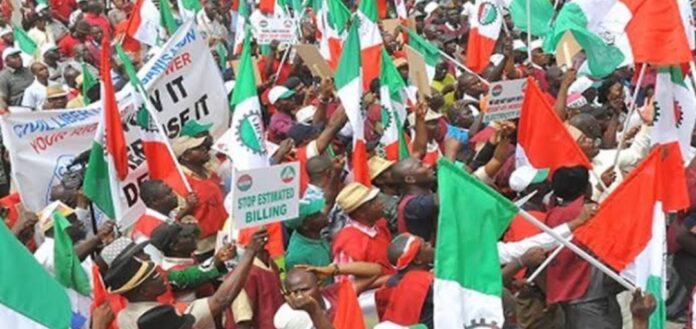Nationwide strike looms as NLC demands reversal of fuel price hike
The Nigeria Labour Congress (NLC) has announced its plan to initiate a nationwide strike on Wednesday, June 7 if the Federal Government does not reverse the recent hike in fuel pump prices.
NLC President Joe Ajaero made this announcement in Abuja on Friday, June 2, following an emergency meeting of the union’s National Executive Council (NEC).
During the meeting, the NLC NEC issued an ultimatum to the Federal Government and the Nigeria National Petroleum Corporation Limited (NNPCL), demanding the reversal of the new pump price by Wednesday, June 7. Failure to comply with this ultimatum will result in the NLC proceeding with the nationwide strike.
Ajaero explained that the decision to strike was prompted by the hardships experienced by Nigerians due to the increased cost of petrol, also known as Premium Motor Spirit (PMS), following the removal of the fuel subsidy by the government.
Addressing journalists after the meeting, Ajaero stated, “The NLC NEC directs all state councils and industrial unions to commence mobilization immediately.”
On May 29, President Bola Tinubu declared in his inauguration speech that the subsidy regime, which previously involved the government bearing a significant portion of the petrol cost, had been abolished.
Shortly after the announcement, most fuel stations across the country shut down, resulting in long queues for motorists.
In several states, including Abuja, the fuel pump price increased by over 200 percent. For example, prior to the removal of subsidy, petrol was sold at N195 per litre in the nation’s capital.
However, since the Nigerian National Petroleum Company Limited (NNPCL) announced new pump prices for different states, the cost has risen to N537 per litre in the city. Prices vary slightly across the country.
The policy change has led to corresponding increases in transportation fares nationwide, causing widespread complaints from citizens who consider the measures too harsh, particularly in a country grappling with high levels of poverty.
Additionally, the cost of food and other essential items has surged due to the policy.
As a result, many workers are now forced to cover long distances on foot, which not only poses health risks but also diminishes productivity.
Follow the Neptune Prime channel on WhatsApp: https://whatsapp.com/channel/0029Va74ZvU2v1IqKByXoX3d
Do you have breaking news, interview request, opinion, suggestion, or want your event covered? Email us at neptuneprime2233@gmail.com


